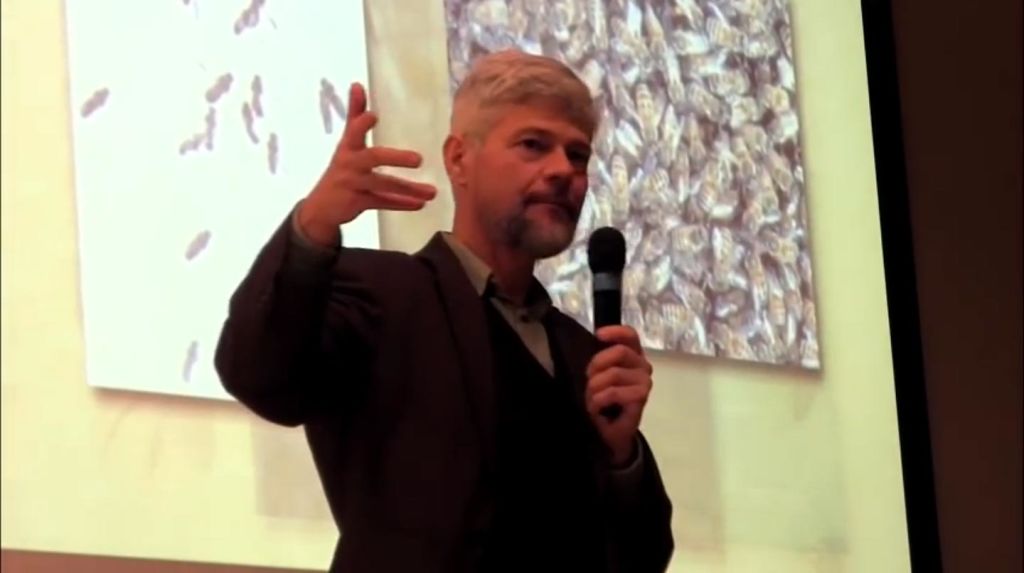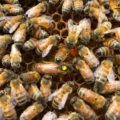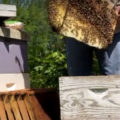On Sat., Feb. 9, I took a ride with Jimmy O, Garry Reeves and Jim Farmer to Anderson, IN to catch the ISBA spring meeting. The line up was Greg Hunt from Purdue University and Keith Delaplane from the University of Georgia.
Over a two-hour drive to Anderson, IN to attend the ISBA spring meeting, it was non-stop chatter talking about bees–my bees, their bees, bees in general, cool things about bees… and, those darn bees aren’t reading the same books we are. One other beekeeper I was looking forward to meeting and talking to at the spring meeting was Tim Ives. If you attend the SIBA meetings in general, you certainly heard us bring up Tim Ives, who is practicing all-natural techniques and having great success.
Well, I caught up with Tim and he and I are working on an article that should be up in the next day or so on the topic of “fat bees” aka “vitellogenin-rich” young nurse bees. For now. Here are the presentations we’ve caught on tape for your viewing pleasure.
Dr. Hunt leads a discussion with ISBA on the Purdue Indiana Queen project. This was the ISBA spring meeting held in Anderson, IN.
Highlights:
- Breeding bees that bite varroa mites. Possible success story in Austria.
- Corn planting can kill bees
- Corn pollen has low levels of pesticides and so does the soil.
- 8ppb pesticide (sub-lethal doses) found in ground that hasn’t been treated for two previous seasons
- Treating for no reason, and treating with improper amounts (from those recommended) are a big reason mites develop resistance. When treating, always use the amount and duration specified! Any mites that you don’t kill walk away more resistant!
Or, view on YouTube:
Dr. Greg Hunt, Purdue University Entomology on mite-biting honey bees
Dr. Delaplane of the University of Georgia spoke to the Indiana State Beekeepers Association about the honeybee “Superorganism”
Highlights:
- How the colony is a unit of selection, or “Superorganism”
- How much genetics are passed from the queen to her children, females, males and siblings
- What drives sociality?
- High relatedness has explanatory powers, especially at the earliest grades of sociality.
Or, view on YouTube:
Dr. Keith S. Delaplane explains the honey bee “Superorganism”
Dr. Delaplane lays out an argument that in the area of bee-breeding, we have “under-exploited” vast areas of honey bee biology and have not come up with something that is predictable, repeatable or something we can “hang our hat on.”
Of the 3 classic breeding designs out there. 1. Maternal selection, 2. Inbred-hybrid and 3. Closed population, there’s also the fact that larva (and eggs) are of three types, Hemizygous bees (male,) heterozygous bees (female,) and Homozygous bees (male, but apparently, bees detect homozygous larva and eat it… so they are never available for observation) In all this chaos, as breeders are selecting for the traits that want in their bees, how would they know which eggs to select? Apparently, all the eggs aren’t the same.
Or, view on YouTube:
Dr. Keith S. Delaplane on “Honey Bee Breeding: Fact or Fiction?”
Find out more about Dr. Delaplane at http://www.ent.uga.edu/Bees/





Leave a Reply